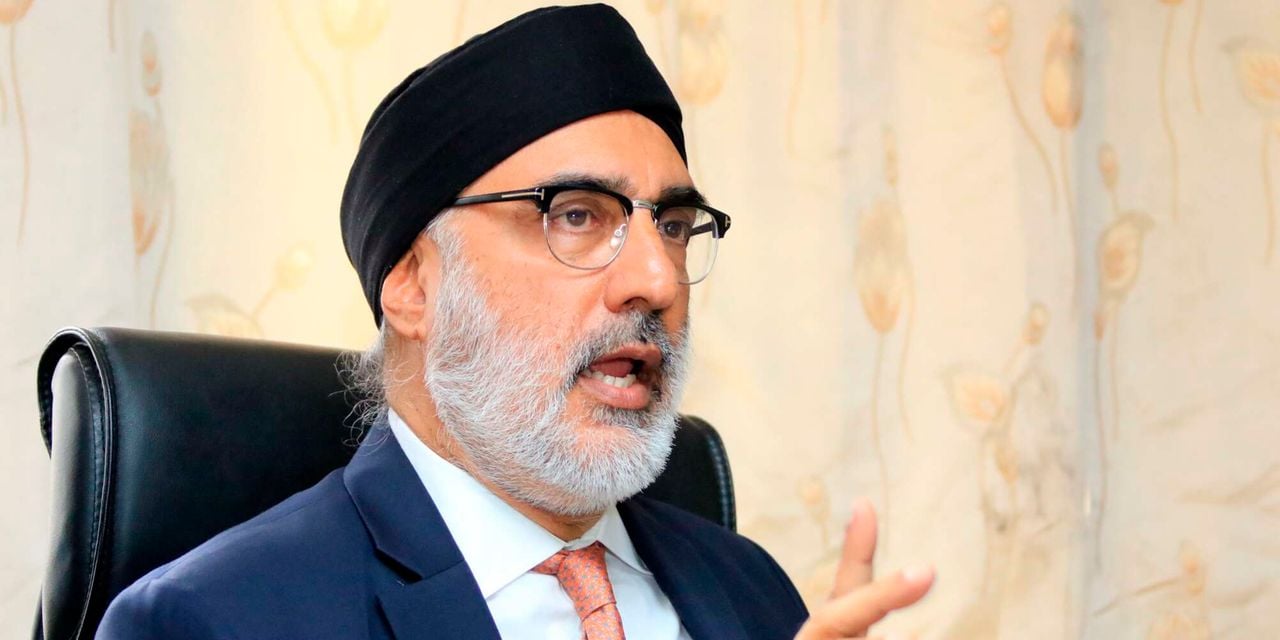Grapevine
Court Ruling Deepens Rift in Billionaire Rai Family’s Succession Battle

A High Court ruling has intensified a bitter succession dispute among the heirs of the late industrialist Tarlochan Singh Rai, revealing deep fractures within one of East Africa’s most powerful business dynasties.
Justice Alfred Mabeya’s decision to uphold the removal of Iqbal Singh Rai as a signatory to Rai Investments Limited’s bank account has effectively sidelined him from financial control of a key family asset, while cementing his brothers’ grip on the family’s vast business empire.
Brothers Against Brother
The dispute centers around Rai Investments Limited, incorporated nearly five decades ago by the family patriarch Tarlochan Singh Rai, who died in December 2010.
The company’s bank account at Absa Bank Kenya has become the focal point of an intensifying power struggle.
Iqbal Singh Rai filed a lawsuit in July 2023 after discovering he had been removed as a signatory to the company’s account without his knowledge.
He claimed to have learned of his removal only in February 2023 when the bank declined his request for account statements, informing him he was no longer authorized to access the information despite remaining a director and shareholder.
The lawsuit pitted Iqbal against his three brothers—Sarbjit Singh Rai, Jaswant Singh Rai, and Jasbir Singh Rai—who collectively control significant industrial assets across East and Southern Africa.
Silent Removal
Court documents revealed that Iqbal, who had been a director and shareholder since 1978, was removed from the bank mandate through a change made on April 26, 2008.
The modification nominated only Tarlochan Singh Rai (now deceased) and Sarbjit Singh Rai as authorized signatories.
Iqbal maintained that his removal was executed without a formal directors’ meeting or resolution—a claim that formed the cornerstone of his legal challenge.
He further alleged that the bank had allowed payments from the account based on a single signature, contrary to established protocols.
Court Sides with Brothers
Justice Mabeya dismissed Iqbal’s claims, stating that his removal was lawful and in accordance with the company’s resolution.
The judge emphasized that Absa Bank had acted within its obligations by following the instructions provided by Rai Investments Limited.
“A bank’s duty is to follow the mandate given to it by its customer and, in the absence of proof that the mandate was altered unlawfully or without proper authorisation, the court finds no fault on the part of the bank,” Justice Mabeya stated in his ruling.
The court further noted that as a director, Iqbal could not assert an individual claim against the bank for actions taken based on company instructions.
Instead, the judge advised that any challenge regarding the validity of the resolution should have been pursued internally within the company’s framework.
Empire at Stake
The legal battle offers a rare glimpse into the private conflicts of one of East Africa’s most prominent business families, whose combined industrial assets span multiple countries and sectors.
Jaswant Singh Rai, who chairs Rai Group, oversees a diversified portfolio encompassing cement production, edible oils, sugar processing, soap manufacturing, sawmilling, wheat farming, horticulture, and real estate.
Meanwhile, Sarbjit Singh Rai is the driving force behind Sarrai Group, a powerhouse in Uganda’s industrial sector with significant operations in sugar, cement, and wood processing across East and Southern Africa.
The dispute highlights the complexities of succession planning in family-owned conglomerates, where business relationships intertwine with family dynamics.
Industry analysts note that such conflicts are increasingly common as first-generation East African business empires transition to second-generation leadership.
Limited Options
With the court’s dismissal of his claim, Iqbal Singh Rai’s options for regaining financial control appear increasingly limited.
Justice Mabeya’s ruling suggests that his appropriate recourse would be to address the matter within the company’s internal framework rather than through independent legal action against the bank.
The ruling leaves Iqbal effectively isolated from the financial operations of Rai Investments Limited, while his brothers maintain their consolidated control over the company’s banking relationships.
As the dust settles on this legal chapter, observers note that family business disputes of this magnitude rarely conclude with a single court decision.
The ruling may represent just one battle in a longer succession war that could potentially impact the future direction and cohesion of the Rai business empire
Kenya Insights allows guest blogging, if you want to be published on Kenya’s most authoritative and accurate blog, have an expose, news TIPS, story angles, human interest stories, drop us an email on [email protected] or via Telegram
-

 Business1 week ago
Business1 week agobetPawa Empire Crumbles: Mr Eazi’s Betting Gambit Unravels Amid Partner’s Shadowy Deals
-

 Business6 days ago
Business6 days agoMinnesota Fraud, Rice Saga, Medical Equipment Deal: Why BBS Mall Owner Abdiweli Hassan is Becoming The Face of Controversial Somali Businessman in Nairobi
-

 News1 week ago
News1 week agoDCI Probes Meridian Equator Hospital After Botched Procedure That Killed a Lawyer
-

 Politics6 days ago
Politics6 days agoYour Excellency! How Ida’s New Job Title From Ruto’s Envoy Job Is Likely to Impact Luo Politics Post Raila
-

 Business2 weeks ago
Business2 weeks agoKRA Boss Humphrey Watanga In Big Trouble In Sh5.5 Billion Rice Import Scandal
-

 News6 days ago
News6 days agoKenya Stares At Health Catastrophe As US Abandons WHO, Threatens Billions In Disease Fighting Programmes
-

 Investigations1 week ago
Investigations1 week agoEXPOSED: SHA Officials Approve Higher Payments for Family, Friends as Poor Patients Pay Out of Pocket
-

 Business1 week ago
Business1 week agoState Set to Demolish Pastor Ng’ang’a’s Church in Sh28 Billion Railway City Push




























